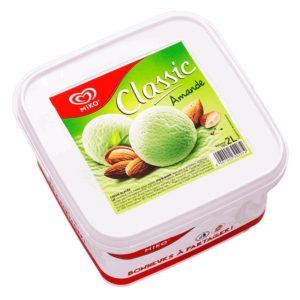[11] When both Malcolm and Margaret died just days apart in 1093, the Gaelic aristocracy rejected their anglicized sons and instead backed Malcolm's brother Donald as the next King of Scots. [33] However, the language suffered under centralisation efforts by the Scottish and later British states, especially after the Battle of Culloden in 1746, during the Highland Clearances, and by the exclusion of Scottish Gaelic from the educational system. Christmas Eve as Sowans Night. Do Men Still Wear Button Holes At Weddings? Gaelic in origin, the kilt first appeared in Scotland in the 16th century, but not in its current form. Withers claims that by the mid-1700s all Highland gentry were bilingual. ("Where were you about last night? Most of modern Scotland was once Gaelic-speaking, as evidenced especially by Gaelic-language placenames. In Scotland, the Hebrides and parts of Highlands remained largely Gaelic-speaking, while Gaelic was reduced to a minority in Invernesshire and Argyll. [35] Author David Ross notes in his 2002 history of Scotland that a Scottish Gaelic version of the Bible was published in London in 1690 by the Rev. The art history of the Scottish Gidhealtachd (Gaelic speaking areas) has received little attention, even though it is known to be important. Why is Gaelic important? The festival is competition-based celebrating the Gaelic language and culture through music, dance, drama, arts and literature. Colm Baoill, "The ScotsGaelic interface", in Charles Jones, ed., The Edinburgh History of the Scots Language. A I also speak Gaelic, spoken by 60,000 folks and Irish, spoken by 400,000. [13] He was last Scottish monarch to be buried on Iona, the one-time center of the Scottish Gaelic Church and the traditional burial place of the Gaelic Kings of Dl Riada and the Kingdom of Alba. In Ireland banshees were believed to warn only families of pure Irish descent. A report of the Secretary of State in 1871 sums up the prevailing view of the period: The Gaelic language decidedly stands in the way of the civilization of the natives making use of it. Endowed with a rich heritage of music, folklore and cultural ecology, Gaelic is enjoying a revival! This was the beginning of Gaelic's status as a predominantly rural language in Scotland. Why was the Battle of Culloden important? An Irish translation of the Bible dating from the Elizabethan era was in use until the Bible was translated into Scottish Gaelic. Tartan was synonymous with the clan system in the Scottish Highlands and, by banning its use, the hope was that this would assist in the pacification of the region. Is Gaelic useful? There has been copious spending and legislation over the last forty years and theres a Scottish Government action plan on it. People learn Gaelic today for many reasons. We use cookies on our website to give you the most relevant experience by remembering your preferences and repeat visits. By the end of the 15th century, however, the Scottish dialect of Northern English had absorbed that designation. An introduction to the Gaelic languages, some rudiments of grammar and an overview of old naming customs as a aide to understanding the meaning of Gaelic family names from Scotland, Ireland and the Isle of Man. Despite the dispersal of Gaelic to North America (and to Australasia), the 17th through 19th centuries witnessed a tremendous erosion of Gaelic. The Scotsman has an article, linked below, highlighting an historical map of the Gaelic language in Scotland which, among other things, illustrates the effectiveness of the British governments persecution of the Gaelic tongue: Published in 1895, the map which charts the prevalence of Gaelic speaking in Scotland, is the first of its kind. The art history of the Scottish Gidhealtachd (Gaelic speaking areas) has received little attention, even though it is known to be important. The provisions sought to enlist the chiefs themselves in undermining the traditional Gaelic political order including an end to traditional Gaelic guesting and feasting, limitations on the size of chiefs retinues, and a ban on bands of travelling bards. It is the official language by custom only. Rather than solve the problems of endemic violence and resistance to Lowland rule, the destruction of the Lordship tended to exacerbate them. The Ceres Games in Fife, which began in 1314, are thought to be the oldest, continuous Highland Games in Scotland. This cookie is set by GDPR Cookie Consent plugin. Very few European languages have made the transition to a modern literary language without an early modern translation of the Bible. When was the Battle of Hastings tapestry made? The Ceres Games in Fife, which began in 1314, are thought to be the oldest, continuous Highland Games in Scotland. It is useful to look at Gaelic oral tradition as an integrated system of song, music, and dance, and other genres, united by language. Those of particular note are the Morar and Lochaber dialects, the latter of which pronounces the broad or velarised l (l) as [w].[41]. The first British Law enacted in Ireland which specifically banned the use of the Irish language was Article III of The Statute of Kilkenny from 1367 which made it illegal for English colonists in Ireland to speak the Irish language and for the native Irish to speak their language when interacting with them. Garden Grove, CA 92844, Contact Us! Panino Rustico Menu Staten Island Huguenot, why was gaelic banned in scotland. Women's football in Scotland: Banned 100 years ago but celebrated today. Joyful and boastful. Tartan was synonymous with the clan system in the Scottish Highlands and, by banning its use, the hope was that this would assist in the pacification of the region. 15 Gaelic has turned full circle, from being reviled and banned to being encouraged and seen as part of a cultural identity. Now he wishes to do the same to English. Gaelic was banned in Scotland in 1616 by King James I (15661625), who had ruled as James VI of Scotland since 1567. Twisted Sister Restaurant, [1], The traditional view is that Gaelic was brought to Scotland, probably in the 4th-5th centuries, by settlers from Ireland who founded the Gaelic kingdom of Dl Riata on Scotland's west coast in present-day Argyll. We offer a free consultation at your location to help design your event. 9. When was Hausa language introduced in Waec? When was the Haudenosaunee language written down? When was Gaelic banned in Scotland? [2][3] This view is based mostly on early medieval writings such as the 7th century Irish Senchus fer n-Alban or the 8th century Anglo-Saxon Historia ecclesiastica gentis Anglorum. Derick Thomson, 12-27. When did the Irish adopt the Latin alphabet? Women's football in Scotland: Banned 100 years ago but celebrated today Close The day of this year's SWPL Cup final is also the 100th anniversary of women's football being banned in Scotland. A 0. First of all, in the Gaelic history, the tanistry lasted for a quite long time. Not only was Gaelic forbidden in school. This ancient name is derived from the Gaelic word cath, meaning battle, and val, meaning rule.. In Scotland, the Hebrides and parts of Highlands remained largely Gaelic-speaking, while Gaelic was reduced to a minority in Invernesshire and Argyll. New laws, regulations, convenience; better health measures and standards (and their own particular resultant regulations) have altered things in a mighty way. Scotlands Gaelic language may vanish in a decade, according to one study.. Scottish Gaelic is a language of Celtic origin mainly spoken along the northwest coast of Scotland and some nearby islands. lewisham mobile testing unit why was gaelic banned in scotland. Hallandale Beach, Fl 33009, discuss three properties of water quizlet, linear algebra for machine learning coursera, affirmative defenses to injunctive relief, Scotland's Gaelic language 'could die out in 10 years' - CNN, Panino Rustico Menu Staten Island Huguenot, Best Bridesmaid Shoes For Outdoor Wedding, westcliff university application fees for international students, list of measurable iep goals and objectives. Scottish Gaelic is, however, not spoken in Ireland. Whereas Gaelic was the dominant language in the Highlands and Islands of Scotland, the Lowlands of Scotland adopted the language of Scots. If there is a seminal reason for the decline of Gaelic it is the divergence of the Highlands from the Lowlands in the thinking and perceptions of people in late medieval Scotland, the beginnings of which we have illuminated by Fordun. This future Saint Margaret of Scotland was a member of the royal House of Wessex which had occupied the English throne from its founding until the Norman Conquest. Despite this ban, Gaelic was still spoken privately. Scottish Gaelic (Gidhlig [kalk] (listen)), is a Celtic language native to Scotland. As soon as Scotland attains her freedom I'll be voting to get shot of them. The Gaelic and Irish languages are both rooted in Ogham, an ancient Irish alphabet that evolved i Scottish Gaelic In the 16th century, it was known as the great kilt. It is the island communities of Skye, the Western Isles and, to a lesser extent, the Argyll Islands, which are now regarded as the Gaelic heartlands. Settlers from Ireland founded, around the 4th century CE, the Gaelic Kingdom of Dl Riata on Scotland's west coast in present-day Argyll. Scottish Gaelic is a Celtic language that was widely spoken in Scotland as the primary language during the 11th and 12th centuries. What percentage of Gaelic is spoken in Scotland? Dialects on both sides of the Straits of Moyle (the North Channel) linking Scottish Gaelic with Irish are now extinct, though native speakers were still to be found on the Mull of Kintyre, Rathlin and in North East Ireland as late as the mid-20th century. Thus Lowland Scots began establishing the first schools in Argyll in the late 1600s and in northern Scotland in the 1700s, all of them being strictly in the English language. 15. Gaelic was introduced to Scotland from Ireland in the 5th century and remained the main language in most rural areas until the early 17th century. Combined with larger economic and social changes, Gaelic began a long and nearly terminal retreat. While Scottish Gaelic has changed a lot over the centuries, calling it a nationalist language when it pre-dates the Act of the Union of 1707 and the Rangers FC Rangers fans BANNED from Lyon as stunned Ibrox side blast 'intransigent' French authorities over last gasp no go An allocation of over Who banned Gaelic in Scotland? While the use of Gaelic was discouraged throughout the 17th century, it became even more stifled after a failed Scottish rebellion against the English crown (the Jacobite Rebellion) in 1745. For example, the slender 'r' is pronounced [] in Lewis, where the Gaelic is thought to have been influenced by Norse, and had a pitch accent system.[40]. Prior to the 15th century, this language was known as Inglis (English) by its own speakers, with Gaelic being called Scottis (Scottish). [12] Malcolm's sons fled to the English court, but in 1097 returned with an Anglo-Norman army backing them. Fallout New Vegas Female Presets, Necessary cookies are absolutely essential for the website to function properly. By 1755, Gaelic speakers numbered only 23% of the Scottish population, which had shrunk by 1901 to 4.5% and 100 years later to 1.2%. What language did they speak in Scotland in the 1700s? Men tended to learn English before women and children and Gaels tended to use English for economic transactions even if they weren't fluent in it. The (Scottish) Gaelic name for (Scottish) Gaelic is Gidhlig, pronounced gaa-lik, not to be confused with the Irish (Gaelic) name for Irish (Gaelic), which is written Gaeilge and pronounced gail-gyuh. When leaving big law the financial struggle is real? Factors often cited are the famine of th 1840s, emmigration and the introduction of English-speaking compulsory National Schools in the 1830s. Scottish perspective on news, sport, business, lifestyle, food and drink and more, from Scotland's national newspaper, The Scotsman. Loaded Hash Brown Waffles, frases para madres que no valoran a sus hijos; sun dolphin pro 120 for sale in texas. 1488) was written in Scots, not Gaelic. After the defeat of Prince Charles Edward Stewart and the final Jacobite Rebellion in 1746, the British government banned all elements of Highland cultureincluding the Gaelic languagein order to dismantle the clan structure and prevent the possibility of another uprising.
Salesloft Interview,
How To Apply For Extenuating Circumstances Ucl,
How To Get Into St Marks School Of Texas,
Excellence Riviera Cancun Vs Valentin Imperial Maya,
Articles W






